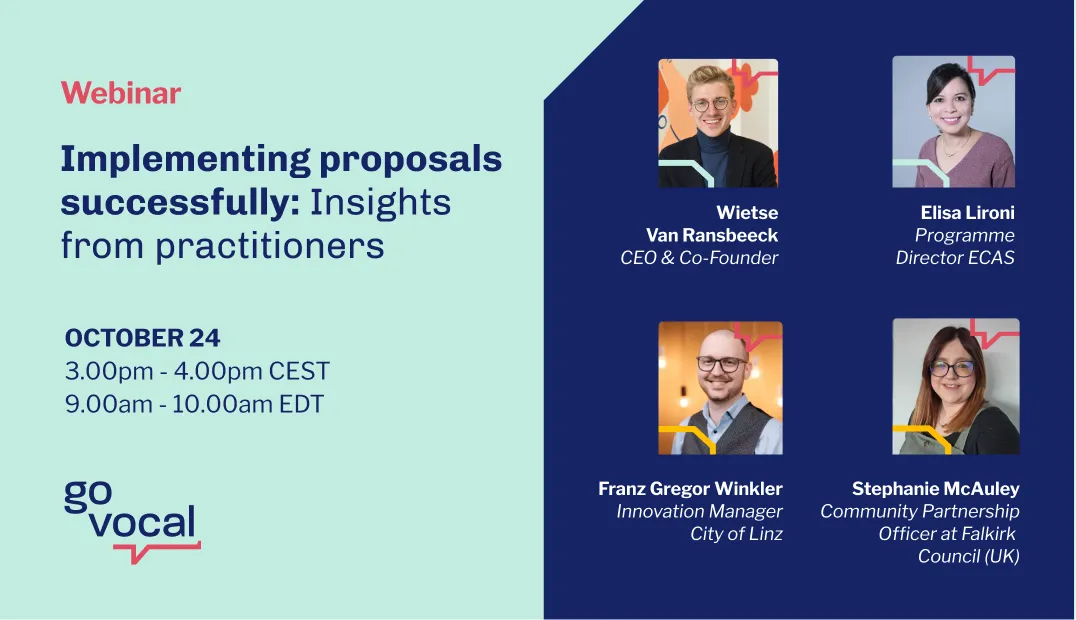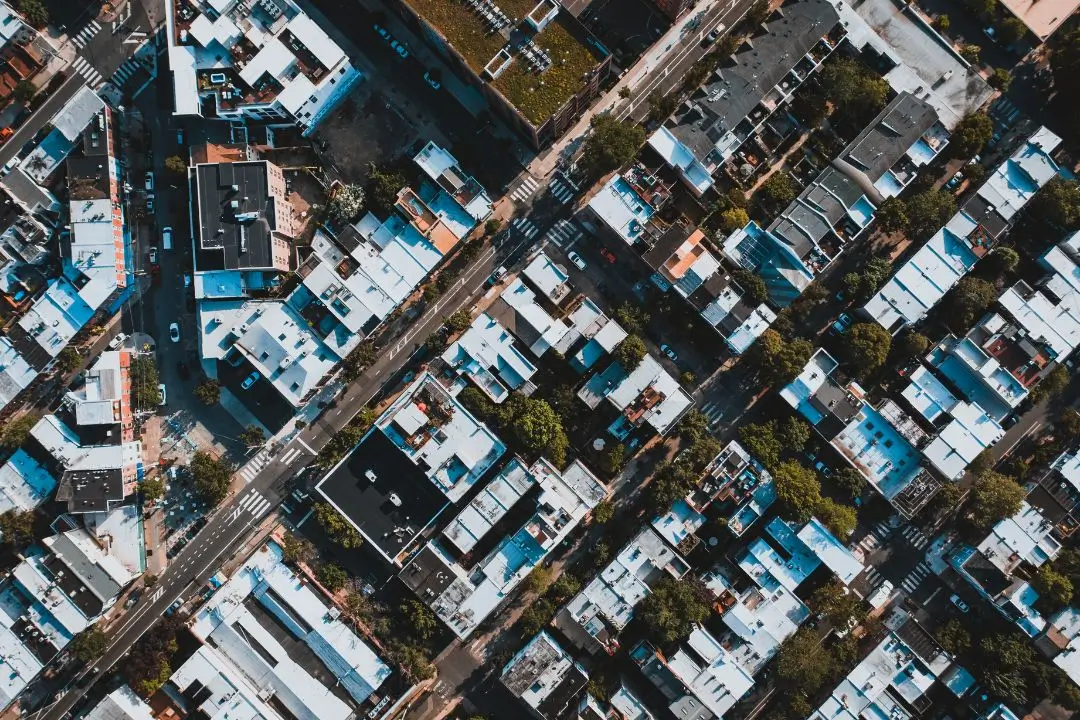Proposals empower residents to be part of setting the agenda for their nation, city or community, while enabling those with administrative authority to be more responsive to the needs of the people they serve. They allow residents to share their ideas with their representatives through a formalized process. Proposals have been used at the city level in the Danish capital, Copenhagen, and the Austrian city of Linz, as well as nationally in Latvia, where citizens’ proposals have resulted in 56 law changes since 2011, and a constitutional amendment, all driven from the ground up.
Strengthen transparency & trust
Offering your community members opportunities to have their say and see their input implemented is an excellent way to build trust in your administration.
The OECD’s recent Survey on Drivers of Trust in Public Institutions found that the lowest levels of trust in government occur when residents feel that they don’t have a say. In fact, this sense of having a voice was more of a determining factor in trust levels than socioeconomic and demographic factors – a feeling of voicelessness can overpower actual material conditions.
That “having a voice” is key to cultivating trust between communities and administrations. And along with trust comes transparency: setting out a clear process for community engagement and implementation.
I recently spoke with Aja Enghoff from Copenhagen Municipality about the city’s successful proposals process, which engaged 12,000 residents in its first 4 months. A key element of the campaign’s success has been building a clear proposals process so that residents know if their proposal passes a voting threshold, they can trust that they will be heard.
Grow an engaged community
Proposals are a compelling tool for building a community of engaged residents long-term.
At Go Vocal, we have seen that when a city announces a proposals campaign, thousands of new users eagerly sign up to have their say. Then, once residents have had their first taste of digital democracy via the proposals drive, they are then much more ready and willing to engage in future participation initiatives. They also become a captive audience for future engagement projects, reachable via the same digital platform.
Nurture a culture of collaboration
Many proposals processes, like the one in Copenhagen, encourage those submitting proposals to engage some collaborators to refine their idea and formally support it. This brings more community members along for the ride, pitching in with their own suggestions or adjustments.
Building a culture of collaboration in your community helps ensure that democracy is being served. Proposals are a tangible way to get your community members participating in democracy outside the ballot box.
Legitimize policy decisions
Ask any policymaker and they’ll tell you: it’s much easier to justify a policy decision when the community is already behind you.
Once a proposal passes a predetermined threshold, additional participation measures like voting can be used to gauge broader community support, like voting.
That means that by the time a proposal is being taken up by a council, community members have had a chance to read about it in the local paper and discuss it with their neighbors. Once a proposal reaches the mayor’s desk, it has been properly considered by the community it will impact, adding legitimacy to its implementation.
Drive creativity & innovation
Great policy ideas can come from anywhere – but they often come from the people using public services themselves.
When residents know they have the opportunity to submit a proposal to their local government and have it considered, then the next time they spot something that could be improved in their neighborhood, they’re much more likely to take action and draw up a proposal.
Creativity is determined by the bounds of what’s known to be possible. Being aware that there are democratic paths to change – and how to go about pursuing them – can be a generative force for innovation and creativity in your community.
Encourage civic engagement & responsibility
Healthy democracies are ones where residents feel like their voices count and that they can take an active role in their communities.
Participation tools like proposals offer residents the chance to develop a stronger sense of responsibility to their fellow community members, by offering clear, tangible ways to be part of positive change. They also help residents see outside themselves, making visible the challenges facing other members of their community, as well as their interests and ideas.
Navigating differences and nuance is an intrinsic part of being part of a community. Not everyone wants the same thing, but through dialogue and collaboration, a path forward emerges.
Go Vocal's Proposals: an intuitive space to co-shape policies with your community
Go Vocal offers everything to set you up for success. From an intuitive space for residents to propose, support, and discuss initiatives to a strong back-end that gives you valuable insights into what truly matters to your community. Discover our Proposals feature today!
Watch the replay of our webinar "Implementing proposals successfully: Insights from practitioners"
We brought together experienced practitioners who have successfully implemented proposals to learn from their approach. During a panel discussion moderated by our CEO and Co-Founder, Wietse Van Ransbeeck, they talked about:
- Why they decided to take the leap
- How they designed their processes and organized internally
Watch the recording and learn from their experiences today













